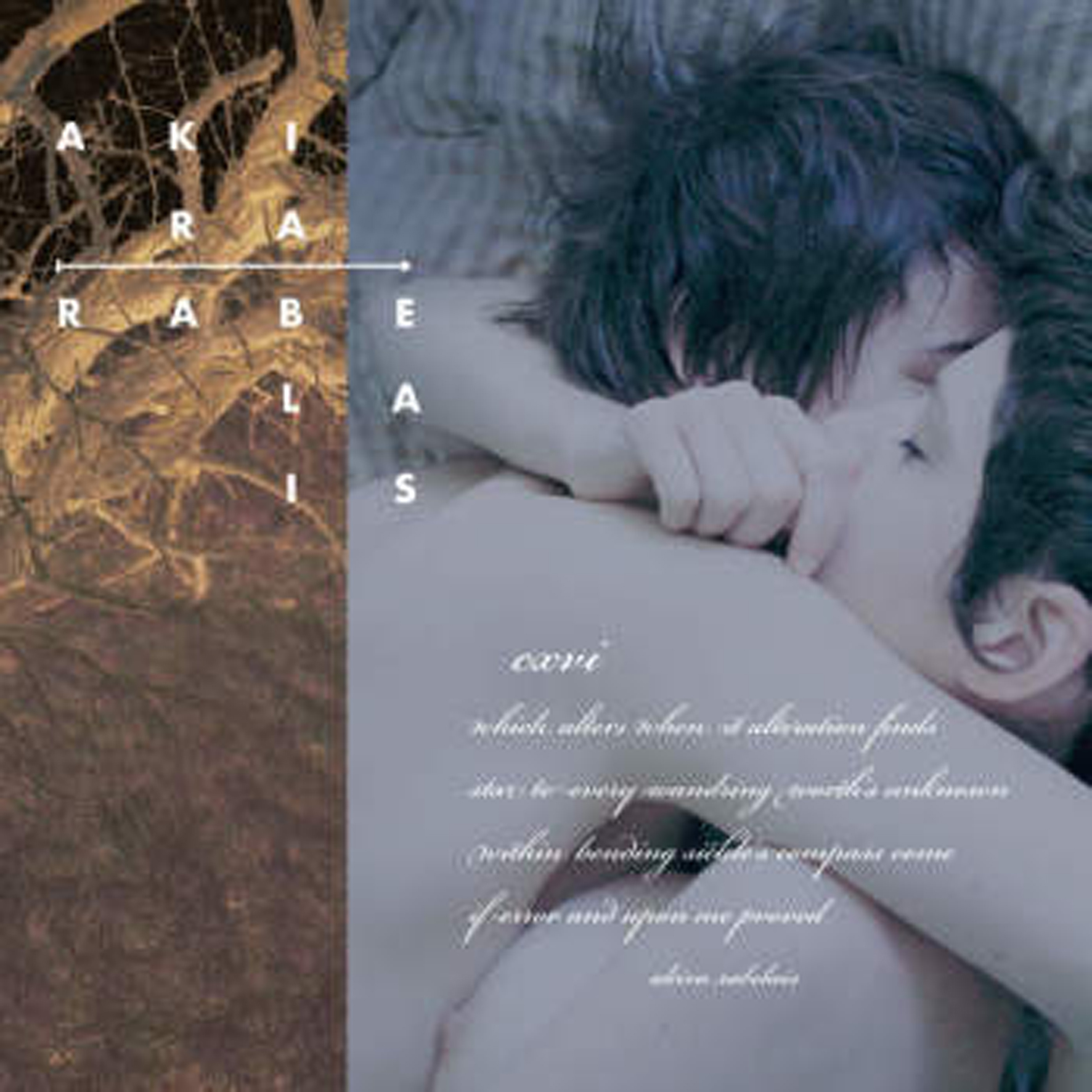Akira Rabelais, "CXVI"
 It took me an embarrassingly long time to realize it, but Akira Rabelais has quietly been one of the most unique and intriguing figures in experimental music for the last couple of decades, blurring the lines between collage, modern composition, ambient music, and conceptual art with each release. This latest album has apparently been a labor of love for years, drawing contributions from an eclectic array of collaborators including Harold Budd, Ben Frost, Kassel Jaeger, Stephan Mathieu, Geir Jenssen, and a pair of French photographers. Admittedly, a bevy of talented participants is not always an infallible recipe for a great album, but it was this time, as CXVI resembles a temporally dislocated and hallucinatory mélange of This Mortal Coil, Erik Satie, and a 19th century Parisian opium den.
It took me an embarrassingly long time to realize it, but Akira Rabelais has quietly been one of the most unique and intriguing figures in experimental music for the last couple of decades, blurring the lines between collage, modern composition, ambient music, and conceptual art with each release. This latest album has apparently been a labor of love for years, drawing contributions from an eclectic array of collaborators including Harold Budd, Ben Frost, Kassel Jaeger, Stephan Mathieu, Geir Jenssen, and a pair of French photographers. Admittedly, a bevy of talented participants is not always an infallible recipe for a great album, but it was this time, as CXVI resembles a temporally dislocated and hallucinatory mélange of This Mortal Coil, Erik Satie, and a 19th century Parisian opium den.
The theme of Rabelais's intended magnum opus is unquestionably a Romantic one, as both the album title and the names of the individual songs allude to Shakespeare's 116 sonnet.Clarifying that further, the album's accompanying text is a lengthy etymology of the word "love."That subject has historically been quite fertile ground for inspiration and the four lengthy movements of CXVI appropriately have the scope and feel of a sprawling, immersive epic.The vaporous structure of the album makes it a very elusive and deliciously ungraspable piece of art though.That is especially true of the opening "which alters when it alteration finds," which opens with a gentle, submerged piano motif in a sea of roiling hiss and wobbly distorted tones.Eventually, however, all of the noise abruptly gives way to reveal a simple and tenderly melancholy piano interlude from Budd.As it progresses, however, the spaces between the notes increases and the focus shifts to their lingering, ghostly afterimages.That evanescent and subtly phantasmagoric approach to composition is the one clear thread that runs throughout the entire album, as each piece is roughly twenty minutes long and is defined by a single strong motif that pierces through the languorous haze of spectral abstraction.Those oft-lovely windows of clarity are bridged together by surreal passages of near-silence, murkily faint strings, and frayed, rumbling drones, however, which dissolves any real sense of these songs beginning or ending.Instead, CXVI unfolds like a fever dream that occasionally coheres into passages of vivid, gorgeous lucidity.
As much as I enjoy Harold Budd, the most memorable and striking moments on the album tend to be those involving Rabelais' revolving cast of unusual vocalists.The album's centerpiece is arguably "star to every wandring worth's unknown," in which Mélanie Skriabine sensuously reads Max Ernst's "La Femme 100 têtes" in French over a barely-there haze of shimmering, undulating tones from Rabelais and Kassel Jaeger.Unlike the other pieces on the album, it holds together in a relatively coherent and recognizable structure from start to finish, simply because Skriabine's voice never goes away.Despite that, however, it is probably the most reality-dissolving passage of otherworldly beauty on the album, blurring together floating dissonance, seductive ASMR, and snatches of piano and violin melodies that feel like they are wafting in from fin de siècle Vienna.The following "within bending sickle's compass come," on the other hand, initially resembles a swooningly Romantic and pitch-perfect reincarnation of classic This Mortal Coil (courtesy of Heligoland's Karen Vogt), but that mirage quickly dissipates into an eerily glimmering and ghostly vapor trail of processed guitar.Notably, the piece was originally composed for one of Cedrick Eymenier’s video works, but it feels quite at home here and adds beautifully to album's half-haunted/half-delirious mood.Following a palette-cleansing crescendo of churning, blown-out synth noise, the closing "if error and upon me proved" returns to ASMR territory with a whispered, confessional-sounding monologue from Bogdan Smith.It admittedly creeps dangerously close to sounding exactly like Felicia Atkinson’s recent work, but it is quite an effective and intimate channeling of that aesthetic nonetheless.
The album ends on quite a sublime, enigmatic, and rapturously beautiful note, however, as "an ancient, arcane air inscribed to 78rpm vinyl by Stephan Mathieu" gradually replaces Smith’s voice for a final coda that sounds like a duet between a lovelorn angel and an antique music box.It is a perfect conclusion to a near-perfect album, as my only critique is that Rabelais has an occasional weakness for openly derivative stylistic touches (not unlike David Lynch’s attempt to replicate "Song to the Siren" via Julee Cruise, actually).I genuinely do not mind that particular proclivity in Rabelais' case, however, as he occupies a curious kind of gray area as an artist.In fact, he is kind of analogous to Andy Warhol in a weird way: Warhol's actual skill as a painter was fairly irrelevant, as his true "art" was his overarching vision and his genius for recontextualizing the recognizable.Similarly, Rabelais' talents as a composer are beside the point as well, as his own genius lies in painstakingly threading together all of his various, wide-ranging fascinations (ASMR, Ernst, photography, language, Shakespeare, French accents, the crackle of vinyl, etc.) into bold and coherent new work filled with beauty, mystery, and wonder.Aside from perhaps Spellewauerynsherde, Rabelais has never done that better than he has with CXVI.



